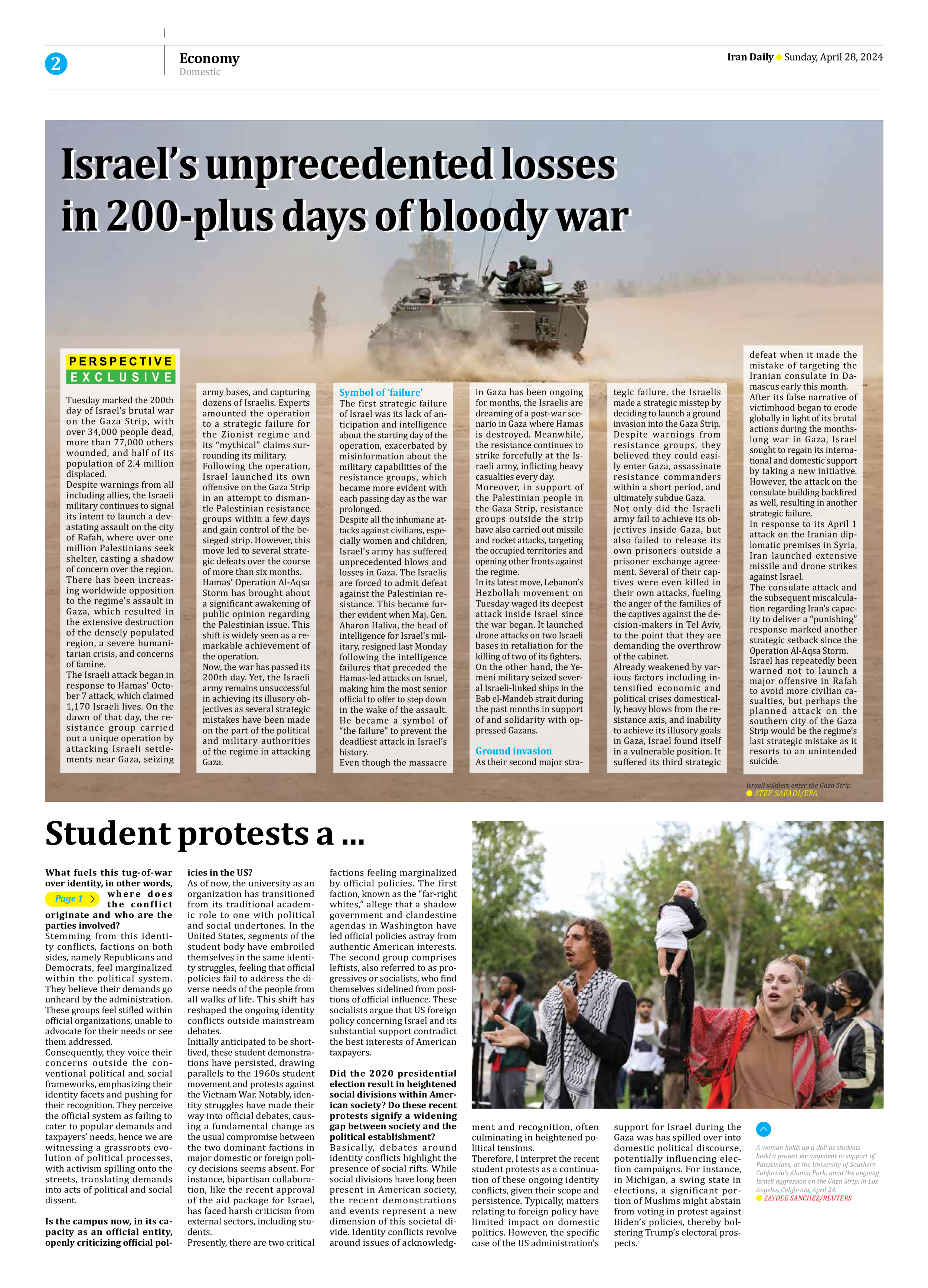
Student protests a ...
Page 1
What fuels this tug-of-war over identity, in other words, where does the conflict originate and who are the parties involved?
Stemming from this identity conflicts, factions on both sides, namely Republicans and Democrats, feel marginalized within the political system. They believe their demands go unheard by the administration. These groups feel stifled within official organizations, unable to advocate for their needs or see them addressed.
Consequently, they voice their concerns outside the conventional political and social frameworks, emphasizing their identity facets and pushing for their recognition. They perceive the official system as failing to cater to popular demands and taxpayers’ needs, hence we are witnessing a grassroots evolution of political processes, with activism spilling onto the streets, translating demands into acts of political and social dissent.
Is the campus now, in its capacity as an official entity, openly criticizing official policies in the US?
As of now, the university as an organization has transitioned from its traditional academic role to one with political and social undertones. In the United States, segments of the student body have embroiled themselves in the same identity struggles, feeling that official policies fail to address the diverse needs of the people from all walks of life. This shift has reshaped the ongoing identity conflicts outside mainstream debates.
Initially anticipated to be short-lived, these student demonstrations have persisted, drawing parallels to the 1960s student movement and protests against the Vietnam War. Notably, identity struggles have made their way into official debates, causing a fundamental change as the usual compromise between the two dominant factions in major domestic or foreign policy decisions seems absent. For instance, bipartisan collaboration, like the recent approval of the aid package for Israel, has faced harsh criticism from external sectors, including students.
Presently, there are two critical factions feeling marginalized by official policies. The first faction, known as the “far-right whites,” allege that a shadow government and clandestine agendas in Washington have led official policies astray from authentic American interests. The second group comprises leftists, also referred to as progressives or socialists, who find themselves sidelined from positions of official influence. These socialists argue that US foreign policy concerning Israel and its substantial support contradict the best interests of American taxpayers.
Did the 2020 presidential election result in heightened social divisions within American society? Do these recent protests signify a widening gap between society and the political establishment?
Basically, debates around identity conflicts highlight the presence of social rifts. While social divisions have long been present in American society, the recent demonstrations and events represent a new dimension of this societal divide. Identity conflicts revolve around issues of acknowledgment and recognition, often culminating in heightened political tensions.
Therefore, I interpret the recent student protests as a continuation of these ongoing identity conflicts, given their scope and persistence. Typically, matters relating to foreign policy have limited impact on domestic politics. However, the specific case of the US administration’s support for Israel during the Gaza was has spilled over into domestic political discourse, potentially influencing election campaigns. For instance, in Michigan, a swing state in elections, a significant portion of Muslims might abstain from voting in protest against Biden’s policies, thereby bolstering Trump’s electoral prospects.







